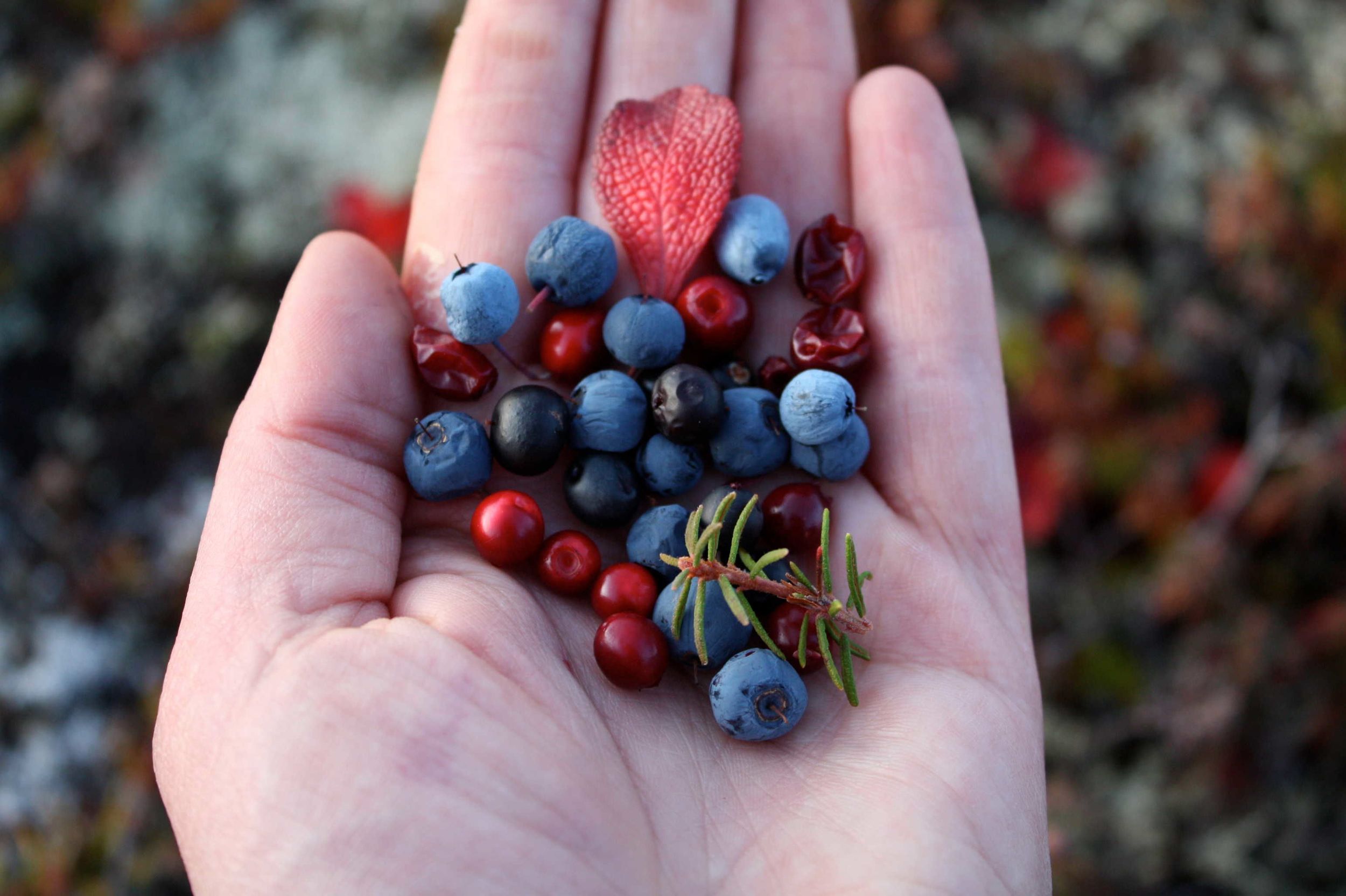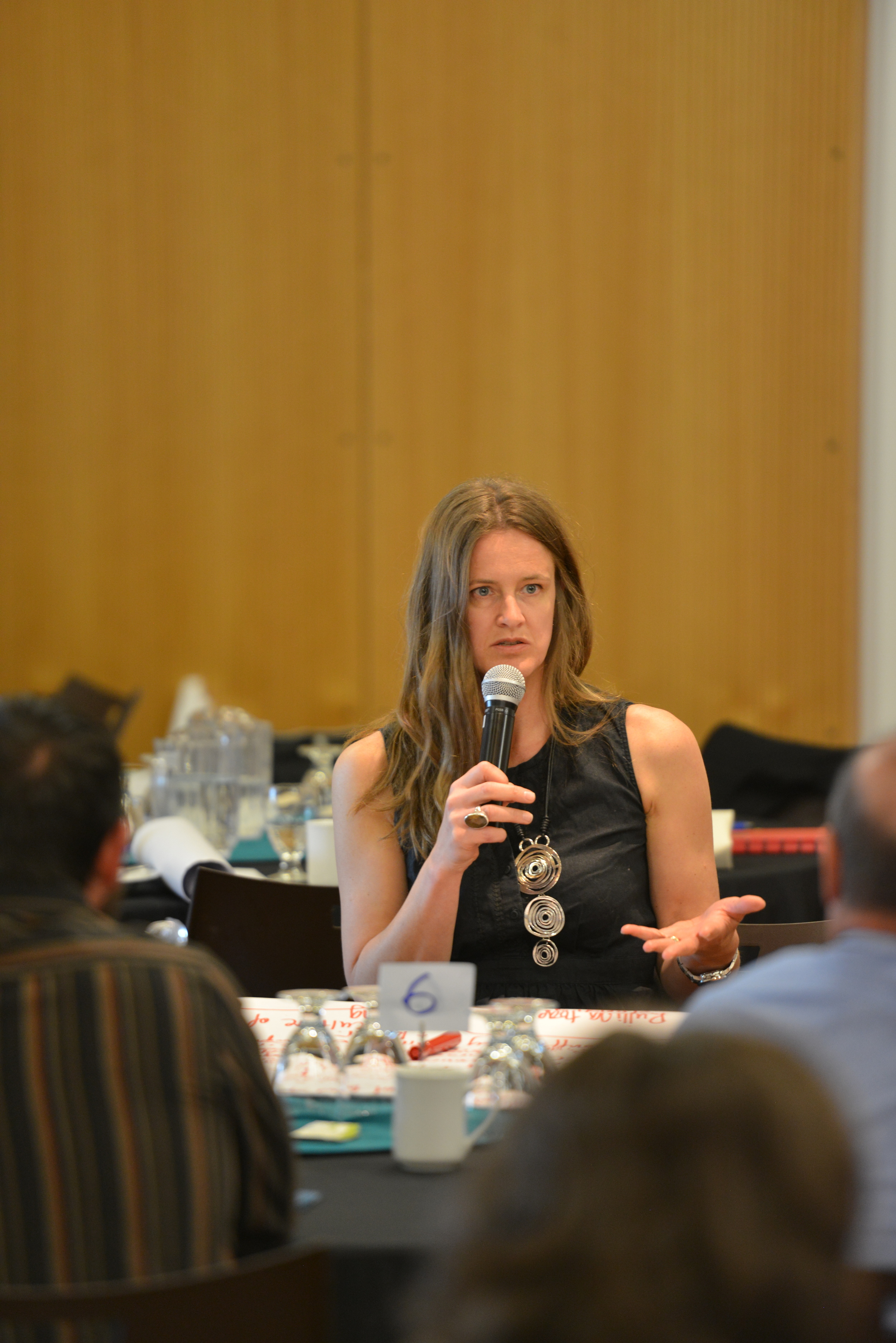Outcomes
Various Avenues for Action towards Food Security in Yukon
The following lists are summaries of discussions from breakout roundtables around various examples for action in the territory around ensuring food security for all. The purpose of this roundtable session was to plan for action around four main topics, including work that already exists and can be built upon, areas where opportunity exists and priorities for action that emerged out of the previous day's roundtables. The four main topics that were discussed were: Yukon First Nations Community Food Strategies, Yukon Anti-Poverty Coalition's (YAPC) Our Food In Place: Food Mapping Project Recommendations, Government of Yukon's Local Food Strategy for Yukon, and Self Sufficiency: A Priority for the Territory (see more on vision and priorities).
Opportunities for Action
Yukon First Nations Community Food Strategies
Communities represented: Little Salmon/Carmacks First Nations, Ta'an Kwäch'än Council, Selkirk First Nation, Teslin Tlingit Council, White River First Nation, Kluane First Nation, Tr'ondëk Hwëch'in First Nation, Taku River Tlingit First Nation, Na-Cho Nyäk Dun
- Sharing
- Traditional knowledge sharing between Elders and youth
- Sharing between First Nations
- Revive trade networks
- Kids eat first - honour children
- Buddy system – network (gardening skills, share info)
- Share traditional medicines
- Self sufficiency
- Community composting
- Build community harvesting camps/programs
- Identify edible plants
- Income support and job skills– people need an opportunity to earn a wage (people want meaningful livelihood)
- Community and Indigenous gardens and greenhouses year-round
- Community smoke-house
- Community kitchens
- Food co-op
- More access to storage facilities – cellars
- Work with fish processing, meat and food
- Working with others
- Yukon College
- Environmental Health Department - emergency food planning; needs to be developed with community values/priorities in mind
- Other First Nations
- Work with our neighbours
- Buy/lease a boat – so we can fish in Alaska
- Create: First Nations Food Security Network
- Leadership
- Community leaders – community champions; need to be organized
- Support and educate leadership
- Food and water portfolios within Yukon First Nations governments
- Strategic community planning - food security strategy development; adapting to environmental changes
- Land designation for farms and land use discussions need to happen at community level
- Develop community jobs around gardening and agriculture - teach job skills in these areas
- Succession planning - adapt to staff turn over through job shadowing programs (back fill)
- Education
- Schools – educate where food comes from/gardening
- Work with Tr'ondëk Hwëchin (TH) Teaching and Working Farm (share resources, training and curriculum development)
- Workshops on preserving
- Ensure school children have access to good food
- Conservation
- Wise-use of resources
- Water conservation/purification
- Save/reuse lumber
- Reconnection
- Going back to the 'old ways'
- Zero tolerance for hunger
- Kids need to be involved at every level of food growing/harvesting, preparing and composting
- Traditional knowledge – seasonal gathering; bear safety/management
YAPC's our food in place: Food Mapping Project Recommendations
- YAPC's Our Food In Place Food Mapping project outlined 10 recommendations
- Need more than just band-aid solutions
- More garden space, community food storage, non-stigmatizing spaces and relationships around food receiving and sharing, community kitchens & collective cooking
- Move beyond food banks towards food hubs/food centres (example, The Stop Community Food Centre in Toronto)
- Incorporate values: growing, learning, education and inclusion
- Look after severe and acute needs & increasing hunger
- Advantages of a mobile food source – safe, anonymous, access
- Respond to increased food insecurity – expand Sally and Sisters model of providing safe access to nutritious meal shared with women and children only; use up-to-date statistics (for example, Point in Time (PiT) count)
- Program clarity and opportunities
- Community kitchens - funding, understanding language (associated with what it’s called (i.e. ‘skills program’, ‘food program’)
- Implement Good Food Bucks program
- Food insecurity is fundamentally an issue of lack of income
- Living wage calculation done for the North - Recently YAPC calculated living wage for Whitehorse to be $19.12 per hour, which is among the highest in Canada (check out YAPC's website for more details).
Government of Yukon's Local Food Strategy for Yukon
- Education
- Develop and expand College curriculum for agriculture (TH Teaching and Working Farm as a role model)
- Food waste
- Food waste barriers – work on how how to get expiring foods to groups who need it rather than throwing food out (educate about expiry dates)
- Government compostable collection needs higher direction from above
- Local food production a priority
- At least 4 initiatives have direct linkages to local food security (see Local Food Strategy recommendations #8,9,10, 11)
Self sufficiency: a priority for the territory
- Multiple levels to self sufficiency
- Individual (30,000 Yukoners); Family; Community; Society (provision for all)
- What it means?
- What do we need for survival?
- Fresh food grown locally
- Eating locally grown food
- Process/preserve food locally - need skills building in this area
- Community access to cold storage - root cellars, freezers
- What is needed?
- Acquiring test for local food - what does local really mean? (i.e. locally grown ingredients or locally processed with external ingredients?)
- Energy consumption and cost - need to be factored in
- Public education piece - need community influencers/champions; change social norm; individual behaviour change
- Advancement of technology - technology sharing (i.e. TH farm and College)
- Track implementation of Local Food Strategy
- More urban spaces for gardening
- Knowledge sharing - particularly around basics in soil; when to plant different vegetables
- What are some good starting points?
- Hands on mentorship for local growing + farming (Growing Forward)
- Kids on the Farm program (expansion)
- From the Ground Up - preserve, grow, prepare food (using local produce)
- Community courses offered: i.e. Through Fireweed, Lorne Mountain Community Centre
- What are some opportunities?
- Community influencers (i.e. Chefs – public culinary festivals, grassroots level (offer cooing tips and ideas for common, seasonal, easy-to-grow veggies (i.e. beets, cabbage)
- Collective equipment and labour; with culture of sharing
- Public engagement program to put pieces together - so that food security is made a priority
- i.e. Public promotion campaign that can connect existing food events throughout to the year; engage with media around food (ongoing); host/highlight guest speakers (chefs, farmers, researchers to talk about food security); promote annual calendar of events around food; host/coordinate workshops (low barrier) to teach food skills
- i.e. Election year - opportunity to make food security an election topic (for example, Food Secure Canada's Eat, Think, Vote Campaign for Federal Election)












